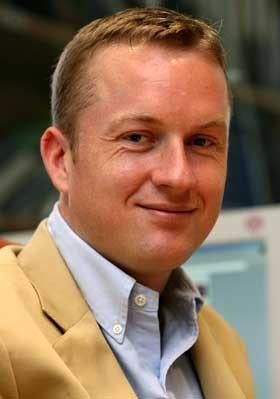
29 October to 4 November
When I say that I love coming back to work in Baghdad, most people think I am lying, or crazy.
I spent two years living and working here, arriving just after Saddam Hussein was overthrown, and leaving in mid-2005 as the country sank deeper into violence and despair.
After I left, things got worse. Sectarian killings sent the death rate spiralling in a country already racked by insurgency. For Iraqis, the simplest daily tasks – going to the market for food, sending their children to school – became ever more fraught with risk.
My job now is overseeing Reuters editorial operations in the Middle East, based in Dubai, a place of luxury hotels and beach resorts. It’s a two-hour flight from Baghdad, but a totally different world.
I am returning to Baghdad to reinforce our office. I’ve never got used to the transition from leaving an orderly airport, passengers flying off on holiday or home to see loved ones, to boarding a flight to the world’s most dangerous city. Some airlines prefer a corkscrew combat landing to evade the risk of surface-to-air missiles. It can be unsettling the first time you experience it.
The main story when I arrive is a possible Turkish incursion in the north to take on separatist Kurdish guerrillas. Through the week, our Kurdistan stringers feed news from the rebels. We cover the shuttle diplomacy as the Iraqi government tries to head off the threat of invasion. A senior London-based correspondent flies to Kurdistan to produce a series of stories about the region.
For a country that has seen so much chaos, the prospect of turmoil in the north is another blow. But by the end of the week, it seems diplomacy may prevail. Our plans are in place to cover a new regional conflict. But for the moment, it seems, we may not need them.
The longer I am here, the more it appears that another story is the key development. The tide of violence that engulfed much of Iraq is waning. It’s too early to know if this will last. But it’s unmistakeable. I notice it as soon as I arrive.
The drive from the airport to our bureau in Baghdad used to be exceptionally dangerous. A friend of mine was killed on this road by a suicide bomb. Several Reuters convoys have had close shaves. But this time, it’s a smooth drive. And once safely in the Reuters compound – fortified with blast walls, razor wire, checkpoints and armed guards – there’s a sense Baghdad is getting haltingly safer.
I never used to set my alarm clock here – the early morning mortar attacks on the Green Zone would always wake me up. There have been none for weeks. For the first time ever, one day I sleep in and start work late. Embarrassing, since the office is a 30-second walk from my room in the Reuters compound.
On Tuesday, we break the news of another monthly drop in civilian casualties. This suggests the US military’s new strategy of sending more soldiers and basing them among communities rather than in isolated bases, plus a campaign by Iraqi groups once hostile to the US to drive al Qaeda militants from their areas, are having an impact.
Back in 2003/04, Reuters and other media here were sometimes accused of exaggerating the violence. We stood by our reporting – despite the difficulties of maintaining a large operation in Iraq, we believe it is essential to have a major presence here to report what is happening, accurately and without bias. Few people now question the accuracy of our stories from Iraq back then. And equally, when now we see evidence violence is falling, we report it, accurately and fairly.
But the risks remain enormous. And as they have done for years, our Iraqi staff provide us with most of our insight into what happens here. Baghdad is still a desperately dangerous place, and and sectarian violence remains a key danger, but they can do the job safer than foreigners. And they do it brilliantly.
That’s why, for me, coming back is such a positive experience. Reuters employs Shi’ites and Sunnis, Christians, Arabs, Kurds and Turkmen. In the most extreme circumstances, they have done an incredible job.
When I left in 2005, I thought a weight would lift from my shoulders. My successors have faced the same burden – every morning, as our staff leave the office to work, we wonder whether they will come back safely. And we cannot relax until they are all home safe at the end of each day. And that is repeated every day.
Eight of my Reuters colleagues have been killed in Iraq since 2003. The hardest thing on this visit was to see photographs we have put up on our wall of Namir Noor-Eldeen and Saeed Chmagh, a Reuters photographer and driver killed in a US helicopter attack in July. When I heard the news of their deaths, I was far away from Baghdad, but they were my friends, and colleagues, and it was hard to bear.
That was when I realised that when any of us leave to go towork elsewhere, we never really leave Iraq behind. Our colleagues are still here, and taking great risks, and are always in our thoughts. Their bravery and dedication is an inspiration. That’s why, for me, it’s always a privilege to come back here and work with them.
Email pged@pressgazette.co.uk to point out mistakes, provide story tips or send in a letter for publication on our "Letters Page" blog




